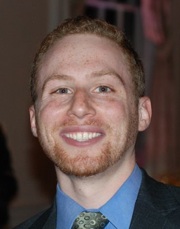 Whether you already have an offer, are hoping soon to receive one, or are just exploring different career fields, chances are good that one of the things you’re seriously evaluating is salary. In my years in this office, candidates have asked me everything from “what am I worth?” to “what is a good salary?” to “what do Penn students typically make?” – questions usually focused on pay rather than compensation. With the high cost of Penn’s education potentially financed with student loans, you (and your parents) often want to make sure that you have a good return on your investment. This is certainly understandable and should be a factor in any offer you consider but I urge you to think bigger. Salary is usually only one part of your compensation package and the value of some of those other benefits can be quite high. Some, like healthcare, retirement contributions or stock options, you may be able to quantify but many are harder to put a price tag on.
Whether you already have an offer, are hoping soon to receive one, or are just exploring different career fields, chances are good that one of the things you’re seriously evaluating is salary. In my years in this office, candidates have asked me everything from “what am I worth?” to “what is a good salary?” to “what do Penn students typically make?” – questions usually focused on pay rather than compensation. With the high cost of Penn’s education potentially financed with student loans, you (and your parents) often want to make sure that you have a good return on your investment. This is certainly understandable and should be a factor in any offer you consider but I urge you to think bigger. Salary is usually only one part of your compensation package and the value of some of those other benefits can be quite high. Some, like healthcare, retirement contributions or stock options, you may be able to quantify but many are harder to put a price tag on.
A colleague of mine recently shared a story from a student with whom she had met who was evaluating an offer. My colleague asked her, “Did you get options?” “Yes,” she replied excitedly. “I have the option of working from home one day a week!” Even though our staff member had been referring to stock options, this student’s response speaks volumes about what else you should consider when you get a job offer. Many of these intangibles like flex time, the ability to work remotely, professional development opportunities or other perks can make a huge difference in the quality of your work life. At some places it might be free food. I was at a start-up a few weeks ago that in addition to offering free beverages (including a beer fridge) and fresh organic fruit daily brings in a masseuse to offer free chair massages to employees once a month. One online retailer keeps life coaches on staff to help employees meet either personal or professional goals. Another employer offers free shuttle service for employees living in several counties surrounding their headquarters. At Penn, I can take one class per semester for free as an employee.
Some of the greatest perks, however, are likely to be ingrained in the office culture. Even though I am in a field where I know that I will never make a lot of money, I wouldn’t want to work in another industry because I love the climate in higher ed and, in my office in particular, because it is supportive and flexible. It means the world to me that I am trusted to get my job done even if that doesn’t always happen on traditional schedule. Whether I need to work from home for a day when my child is home sick or leave work a little early to go see a house with my realtor, I feel so lucky to know that I work in an environment where I can arrange to do those things and not fear professional repercussions. That said, these are benefits that you usually only earn as a reward for doing a good job and proving your worth over a course of time. Needless to say I would not have asked for either of those two things in my first year on the job.
So as you evaluate any professional offer I urge you to consider more than just your monthly or annual wage. What are those other benefits worth both to your pocketbook as well as your emotional health? I can tell you that, for me, quality of life at work is priceless.








